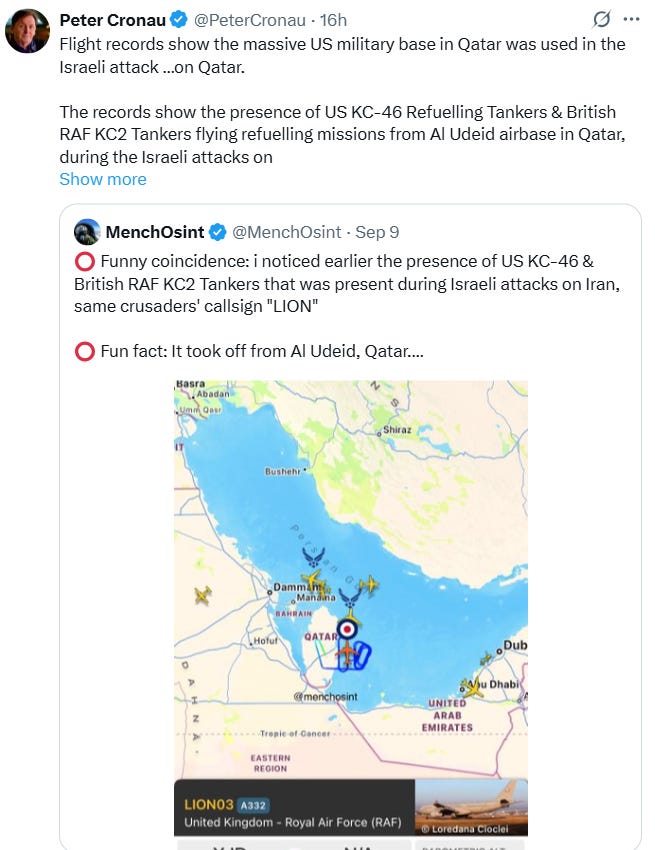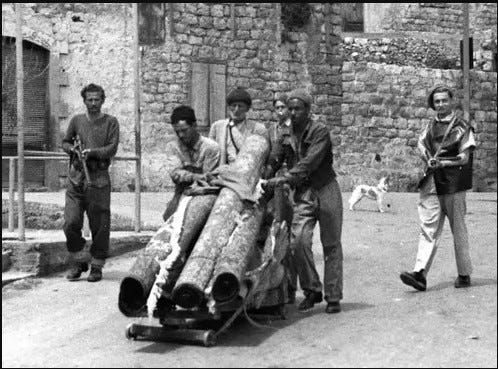On 9 September 2025 an Israeli strike hit a meeting in Doha that was reported to involve Hamas figures and mediation linked to a US ceasefire proposal. The attack killed several lower ranking Hamas members and a Qatari security officer, and it shattered the idea that mediating capitals are safe places for talks.
Qatar reacted with fury, calling the strike a blatant violation of its sovereignty, and governments and international institutions around the world joined in condemnation. This was not just a military operation, it was a political signal that makes negotiation harder and raises the risk of wider conflict.
This was not an isolated incident. Over years Israel has carried out operations beyond Gaza and Lebanon that removed senior figures and weakened possibilities for talks. When negotiators and envoys can be attacked while they meet in neutral cities, the whole logic of third party mediation unravels, because hosts will be less willing to offer safe rooms and envoys will think twice before travelling. The Doha strike did more than kill some people, it made negotiation itself more dangerous.
Serious questions also surround the logistics of the attack. In the hours after the strike, rumours spread on social media that US and UK tanker aircraft in the region had refuelled Israeli jets. Official sources quickly denied any confirmed refuelling for this mission, and for a time those claims rested only on speculation.
Now, however, flight tracker data shows that an RAF refuelling aircraft was circling overhead as Israel bombed Doha. The distance from Israel to Doha is roughly 2,200 kilometres, about the same as the total range of the F-35 strike aircraft used by Israel, which makes in-flight refuelling highly likely if the planes were to return home. This evidence lends weight to what had been dismissed as rumour.
The Starmer government in London has already faced heat over a similar case in Gaza, when six journalists were killed in an Israeli strike as an RAF tanker was tracked circling above. Those questions were never answered. Now, with flight data pointing to a British refuelling plane present during the Doha strike, the charge becomes even more serious: that the UK has shifted from political cover and intelligence support into active collaboration in an act of war against a sovereign state hosting peace talks. The role of the UK in this ongoing genocide must be investigated far more deeply.
Saudi Arabia’s silence is just as troubling. The strike path crossed or came close to Saudi skies, yet Riyadh did nothing. Was this a deliberate choice to avoid a clash with Israel, proof that Saudi air defences could not stop a carefully planned mission, or were US forces stationed there keeping the Saudis in the dark about the breach of sovereignty? None of these answers are good. Inaction means mediators cannot count on protection, the role of US bases must be investigated, and the supposed shield of regional airspace looks paper thin.
The United States also comes under direct scrutiny. Washington keeps saying it wants a ceasefire, yet its response to the Doha strike was muted, even though reports suggest American officials had advance notice. It adds to a disturbing picture of using talks as cover for attacks, just as we saw earlier this year in Iran. When the US shrugs while an ally bombs a negotiating table, its claim to be an honest broker collapses.
Critics argue that Israel’s government has no interest in peace at all. They see a clear pattern: negotiations disrupted, mediators targeted, maximum pressure applied, and no space left for a Palestinian political future. When you hold this up against the ongoing genocide, it all fits into place. These are strong accusations, but the Doha strike makes them harder to dismiss. It shows force being used not just on the battlefield, but against the very idea of diplomacy itself. Just as journalists, academics, and health workers have been targeted, now diplomats are too.
The response must be just as forceful. First, there must be an independent investigation into who carried out the Doha strike and whether allies provided support. Second, any state found to have helped must come clean and face consequences. Third, countries that host talks must be guaranteed real protection for their airspace and for the people they shelter. And finally, let us call this what it is: a terrorist attack on the heart of diplomacy, and one the world must condemn without hesitation.
All articles on Diaspora Dialogue are free to read for one year from publication. If you’ve enjoyed this piece and would like to support my work, you can do so by subscribing, or by buying me a coffee. Thank you for reading and being part of the dialogue!




